Intellectual Expertise of the Prophet Muhammad ﷺ
Intellect is an important attribute of the Prophets of God. With regards to prophethood, it has a composite meaning: profound reasoning power, sharp intelligence, sound judgment and wisdom transcending that of the common man through an exalted power of understanding. It bounds and correlates with all human capacities, whether they are physical or mental. Certainly, this sublime attribute served as a leading light in their journey to call people to God. All prophets sent by Allah Almighty were well equipped intellectually and led people to the straight path with their unparalleled wisdom. Along with divine revelation, the intellect with which Allah blessed them also played a pivotal role in the successful completion of their mission. From Adam (a) to final Prophet Muhammad ﷺ, all messengers used their intellect in the manner that it didn’t contradict the divine revelation. It is seen in the history of prophets that they made use of the intellect when they missed revelation at a particular point. That later either was ratified or corrected by Allah ﷻ. However, they didn't rely on intellect to the hilt; instead, they intervened intellectually in required points.
God reveals his might in the veil. His infinite unity demands that we attribute influences directly to his creative ability. He veils his acts with natural causes so that people may not ascribe to Him that which seems contrasting. So, Allah Almighty sent messengers to carry and communicate His revelation. As people cannot receive the revelation directly, Allah positioned prophets as the mediators to receive and transmit it. Then, they modulated and imparted the given messages according to the intellectual capacity and existing circumstances. In a nutshell, prophetic intellect makes prophets capable of understanding their people and thus become able to respond to their queries and find a meaningful solution for their problems.
If we put the wins of Prophet Muhammad ﷺ into scrutiny, we see that he was an expert statesman and high-ranking leader. As the luminous manifestation of the divine attribute of speech, he is the most powerful rhetorician the history has ever seen. His words are so powerful, which influence everyone regardless of intellectual sublimity and simplicity. As man's knowledge increases, the meaning of his words also increases like the vast firmament. Understating the exalted level of understanding Prophet Muhammad ﷺ has, Wahab bin Munnabbah, an expert scholar in Thorah and Gospel once said. If we compare the Prophet's understanding level with humanity’s total mental and psychological capacity, we will see it as a single sand particle compared to all the sand in a vast desert.[i]
Prophet Muhammad ﷺ could assess people's mental and physical capacity precisely. He behaved and talked with people according to their level of understanding. He never relied on falsehood or flattery to appease anyone or to provoke. Instead, he talked directly to the person according to his range of understanding. Once a renowned orator in Mecca, namely Husain, famous for the convincing style of speech, tried to side-track the Messenger ﷺ from his mission with his tricky words. God’s messenger paid heed to his argument attentively then initiated this conversation.
Husain, how many deities do you worship?
– Eight; one in the Heavens and the others on Earth.
– Which one do you approach when misfortune happens?
– The one in the Heavens.
– Which one do you call for help when your things are gone?
– The one in the Heavens.
Likewise, the Prophet asked many questions and received the same answer. Then he said: only the one in Heavens responds to your call though you call many. Since then, you associate the partner with him. Isn't this what I am preaching? With this simple argument, He defeated Husain in his own logic. [ii]
Before his Prophethood, the Kaʿbah was destroyed by torrential rain, and the flood ensued. The Quraysh restored it with the wealth they gained from permissible trade. However, clan warfare broke out when it came to select the one who would restore the sacred Black Stone (Ḥajar al-Aswad) to its proper place. After an acrimonious debate and argument, they reached a solution to refer the matter to whoever appears first at the Kaʿbah. To everyone's solace, that person was Muhammad ﷺ. They yelled cheerfully: "The Trustworthy One is coming!" After explaining the problem, he asked them to bring a piece of cloth, which he spread on the ground. Putting the Black Stone on it, he invited each clan chief to hold a corner and lift the cloth. When the Black Stone was at the required height, Muhammad ﷺ put it in its place. Clan warfare was thus warded off. [iii]
Bernard Shaw pointed out once that the Prophet solved problems, though it is severe or simple, as easily as one drinks coffee.[iv]. Even when he encountered the most unexpected situations, he remained calm and cool and found a meaningful solution with everyone's satisfaction. His whole life shows that he was a man of perfect balance and that this balance was never lost. It was seen in the first historic decision taken by the Prophet ﷺ after he migrated to Madinah. Due to the agonising torture and torment from Quraish, the Prophet and believers set sail to Madinah seeking an asylum. After that historic arrival, at the outset itself, the Prophet ﷺ managed to firm up the ties between the believers establishing the unparalleled fraternity among them. It was a marvellous brotherhood between those who migrated and those who wholehearted by receiving them. It was when distaste was to break out between local inhabitants of Madinah and refugees. Later, this incident was described as an ideal solving of the refugee crisis. Thus, the Prophet ﷺ solved a major problem in a jiffy with his intellectual mastery.
Consider the following example. After the illustrious conquest of Makkah, a whole lot of disbelievers embraced Islam. Quite naturally, it was difficult for them to reach into a sincere belief so fast. So, the Prophet ﷺ wanted to reconcile their hearts and increase their faithfulness by preferring them over the Muslims when distributing the spoils of war after the Battle of Hunayn.
The spoils consisted of camels, sheep, goats, and ten thousand pounds of gold and silver. Prophet gave 300 camels and 250 pounds of gold and silver to Abu Sufyan and his family, 200 camels to Hakim ibn Hizam, and 100 camels each to Nusayr ibn al-Harith, Qays ibn Asiyy, Safwan ibn Umayya, Malik ibn Awf, Akra ibn Habis, and 'Uyayna ibn Hisn. The Prophet did this generosity to cure the tarnished image of Makkan leaders.
Unexpectedly, some younger Ansaris became upset in the favour done by the Prophet. They did not want the spoils for themselves; rather, they did not tolerate to see the enemies of Islam being rewarded. This led to a dividing split among the Muslim battalion. When Saʿd ibn ʿUbādah, strong Ansari leader informed the Prophet of the situation, he ordered Ansars to assemble and opened his speech in a sizeable way to attract and hold attention, and to soothe their glowing souls: "O Community of the Helpers! It is being heard that you are uneasy with me.” Then he went on his impressive speech reminding the unending blessings of Allah with which Ansars were blessed. He asked loudly: “Were you not in misguidance when I came to you? And did God not guide you to the truth through me? Were you not in perennial poverty when I came to you? And did God not supplement you through me? Were you not in internal conflicts when I came to you? Shocked by hearing the emotional address of the prophet, they agreed on all and answered: Oh, Messengers of Godﷺ! We are thankful to You and Allah.
These words are powerful enough to make making Ansars bursting into tears and responding: Oh Messenger of God ﷺ; we are satisfied with Allah and His messenger ﷺ. We desire nothing else. In a jiffy, with a powerful speech, the Prophet ﷺ rooted out the seeds of the dissident movement in Muslim battalion and conquered the heart of Ansars. [v]
Another striking example in this regard is the dealing of the Prophet ﷺ with Thumāmah ibn Uthāl al-Ḥanafī. He was the chieftain of Banū Ḥanīfah and one of the rulers of Yamāmah. He was a powerful Arabian leader in the pre-Quranic period. When the Prophet ﷺ sent letters to rulers of Arabian Peninsula and neighbouring areas inviting them to embrace Islam, he dispatched one letter to Thumāmah also. After receiving the letter, he felt extremely angry and resolved to kill the Prophet. In this pursuit, he killed a number of the Prophet's companions. After some days, he left for Makkah to perform minor pilgrimage (ʿUmrah). Midway, he was apprehended by a group of Muslims patrolling nearby areas of Madinah. Unaware of who he was, they tied him to a pillar of Masjid and waited for the Prophet ﷺ to take the decision on him. Instead of harming and taking revenge for killing Sahaba, the Prophet approached him softly and behaved with gentle ethics. He commanded his companions to draw milk and serve it at dawn and dusk. After three days, the Prophet ﷺ allowed him to go scot-free. The gentle dealings and acquittal by the Prophet ﷺ made Thumāmah contemplating more and finally led this to dazzling conversion[vi]. If prophet had done something in hatred and retaliation, Islam would have missed a pious and powerful chieftain, but the Prophet ﷺ intervened with impeccable diplomacy and won people’s hearts.
Intellect as far as prophets are concerned is an inevitable characteristic. All prophets were blessed with unparalleled wisdom and intellect. They used this blessing for the sake of God successfully. In the required time, they intervened intellectually in the religious and worldly affair. Dazzling examples of exercising intellect by the Prophet Muhammad ﷺ are self-evident in crystal clear way with above-mentioned incidents.
Endnotes:
[i] M Fethullah Gulan, The messenger of God-Muhammad –Analysis of the Prophet's Life, (Istanbul : feedbook 2009) p.94
[ii] Muhammad ibn `Isa at-Tirmidhi, Sunan at-Tirmidhi. Book of Supplication. Hadith no:3820
[iii] Muḥammad Khuḍarī, Nur al-Yaqin fi Sirah Sayyid al-Mursalin (Alexandria : Dar al-Jil 1988) p 21
[iv] M Fethullah Gulan , The messenger of God-Muhammad –Analysis of the Prophet’s Life, (Istanbul : feedbook 2009) p.93
[v] Muḥammad Khuḍarī, Nur al-Yaqin fi Sirah Sayyid al-Mursalin (Alexandria : Dar al-Jil 1988) p 218
[vi] Bāshā, ‘Abd al-Raḥmān Ra’fat, Ṣuwar min Hayāt al-Saḥābah (Bayrūt : Dār al-Nafā’is lil-Ṭibā‘ah wa-al-Nashr wa-al-Tawzī‘, 2010.) p 56
(Fahad bin Ibrahim is an Islamic scholar from India and presently is working as an English language teacher at the Ministry of Education, Republic of Maldives. He is co-founder of Wadeema Muhamed Butti Women’s college, Kerala, India (an Islamic and Arts College which provides religious and secular education for female students. Email: fahadkc123@gmail.com)
Disclaimer
The views expressed in this article are the author’s own and do not necessarily mirror Islamonweb’s editorial stance.

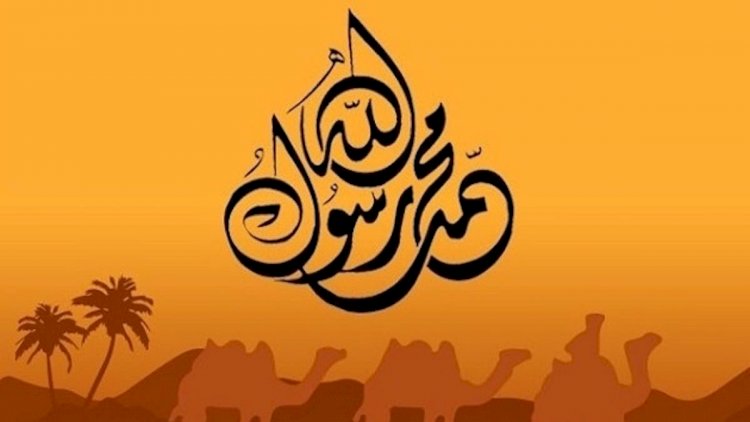



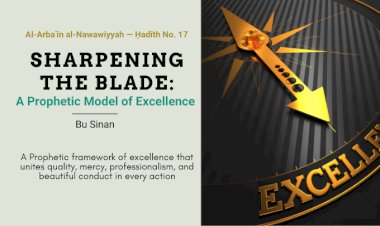
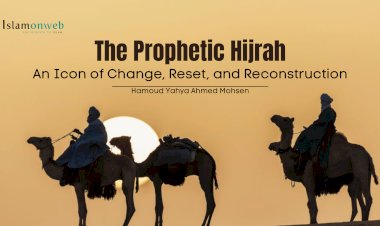
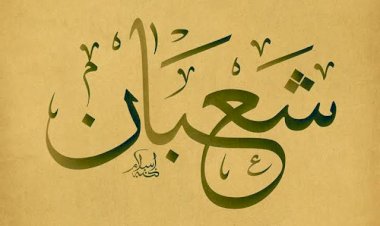
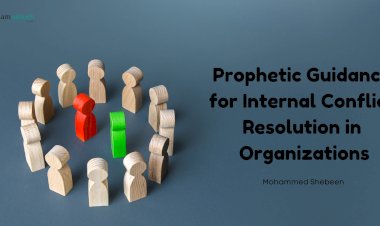
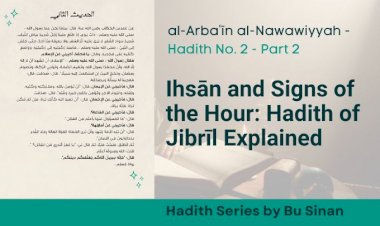
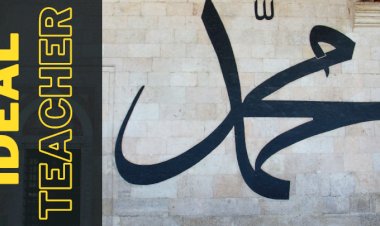














Leave A Comment